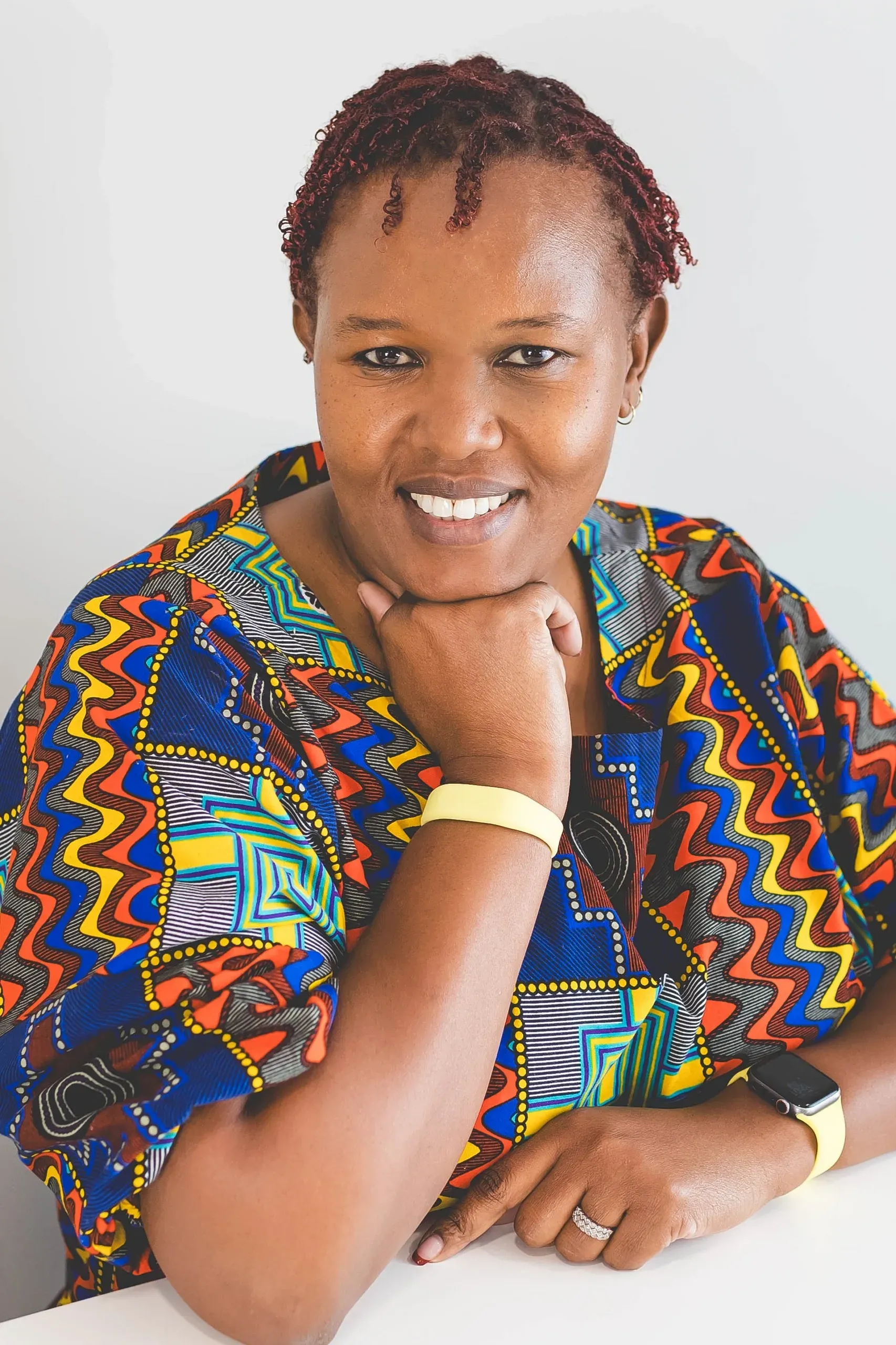Water, Dignity, and Protection: Why We Must Act Now!
- Linda A

- Apr 16
- 4 min read
On March 14, 2025, I woke up to a message from Mwendwa (volunteer outreach partner) in Kenya. He had just returned from Samburu (Kenya) and shared a series of photos he took during his visit.
As I scrolled through them, I froze.
A child hunched over a muddy puddle to drink.
A makeshift classroom of sticks and shadows.
Children gathered on stones beneath a tree, trying to learn with little more than a chalkboard.
My heart sank. These weren’t just pictures they were memories. They were my childhood.
It was as if time hadn’t moved. The same struggles I once lived were still playing out, frame by frame, through his lens. The dust, the thirst, the quiet resilience etched into each child’s face it was all too familiar. And what struck me most was not how far I’d come, but how far too many have been left behind.
I grew up in Kitui, an arid region in Eastern Kenya, where life revolved around two seasons rainy and dry. The rains, when they came, were fleeting. Crops like beans would sprout with hope, only for the sun to return and bake the land dry again.
By the age of ten, I had learned to balance a five-gallon water container on my back. Water wasn’t just scarce it was survival. We fetched it from our neighbor’s deep well or dug into dry riverbeds, using the same muddy water for cooking, drinking, and livestock. During school holidays, my siblings and I would wake before dawn to herd cattle and till land, often without shoes, unaware of injuries until we saw blood-stained footprints in the dirt.
Yet even in the middle of hardship, I had something many didn’t my mother’s fierce belief in education. A single parent and civil servant, she took out loan after loan to make sure her daughters had a chance. I once saw her paystub after deductions, there was nothing left to deposit. But her sacrifices built the foundation I now stand on.
In university, I joined a team of peers to build classrooms for a rural school where four grades shared one overcrowded space. With just $400, we constructed three iron-sheet classrooms. That moment lit a fire in me a passion for sustainable impact and community-driven solutions.
Years later, my husband and I set up a grain storage facility to help small-scale farmers in Kenya who were being exploited by middlemen. By introducing the warehouse receipt system, we empowered them to store their crops and sell when prices were right. We were building economic dignity one farmer at a time.
But the fire in me grew stronger when I saw the 2025 photos from Samburu, Kenya. Children drinking from the same water where livestock defecate. Young girls at risk of early marriage or exploitation. I couldn't look away. Not when I had lived that reality. Not when I had the means to act.
You see, this mission is personal.
I carry physical scars from my childhood: one on my arm from fighting over leftovers in a cooking pot, another on my foot from stepping on a nail while barefoot. I carry emotional scars from witnessing abuse, from losing a relative who was trafficked and died of HIV-related complications. I know what it means to be voiceless. Invisible. Forgotten.
That is why I founded HopeWorks Global.
Our Mission:
We are a nonprofit dedicated to ending human trafficking by tackling its root causes poverty, lack of education, water scarcity, and systemic neglect. We work in communities where vulnerability is high but resilience runs deep.
Through AfroKouture, we celebrate African heritage and economic empowerment. The very communities that are often overlooked those creating beautiful jewelry, clothing, and home décor are now finding pathways to freedom and dignity.
Why Water? Why Now?
These are not just photos. They are symptoms of a much larger crisis the intersection of poverty, lack of access to education, and resource scarcity. These are the very conditions that traffickers exploit.
When children miss school to fetch water, their education stops.
When girls walk for hours to find water, they are exposed to risk.
When families are desperate, they become vulnerable to false promises and exploitation.
This is not just a humanitarian issue it’s a strategic intervention in the fight against human trafficking.
Here’s How You Can Help
HopeWorks Global is on a mission to break the cycle of exploitation by addressing its root causes starting with access to clean water and life-saving education.
We’re currently raising funds to drill wells in Samburu and expand our human trafficking prevention training programs equipping communities with both the resources and the knowledge to build safer, stronger futures.
You can also support our mission by shopping at the AfroKouture store. Every handmade piece empowers women artisans and directly funds this vital work.
Together, we can:
Keep girls in school by reducing the time spent fetching water
Prevent exploitation and early marriage through education and opportunity
Improve health and build resilience in high-risk communities
Deliver life-saving training and awareness where it’s needed most
Restore dignity one drop, one training, one life at a time
This Is Personal. This Is Prevention.
Someone once chose to invest in our community and that choice changed lives. It gave us more than resources; it gave us hope, dignity, and a chance to dream beyond survival.
Now, it’s our turn to pay it forward for the next girl walking miles for water, for the mother choosing between food and school fees, for the child vulnerable to exploitation simply because no one showed up.
This isn’t just about aid. It’s about justice. It’s about preventing trafficking by changing the conditions that cause it before it begins.
Let’s stop trafficking before it starts. Let’s bring clean water, education, and freedom to Samburu. Let’s do this together.
Give Hope | Shop AfroKouture | Stay Connected for Updates










Comments